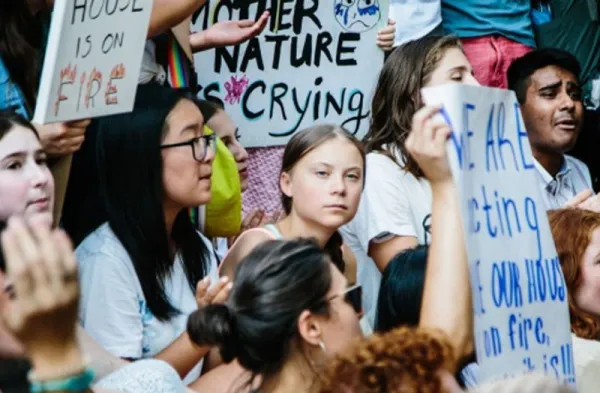The committee that awards the Nobel Peace Prize was right not to give the prize to Greta Thunberg, who deserves the highest prizes available, but not one created to fund the work of abolishing war and militaries. That cause ought to be central to the work of protecting the climate, but it is not. The question of why no young person working to abolish war is given access to television networks ought to be raised.
The vision that Bertha von Suttner and Alfred Nobel had for the peace prize — the promotion of fraternity between nations, the advancement of disarmament and arms control and the holding and promotion of peace congresses — has not yet been fully grasped by the committee, but it is making progress.
Abiy Ahmed has worked for peace in his and neighboring countries, ending a war and establishing structures aimed at maintaining a just and sustainable peace. His peace efforts have included environmental protection.
But is he an activist in need of funding? Or is the committee intent on continuing its practice of recognizing politicians rather than activists? Is it sensible to award only one side of a peace agreement? The committee acknowledges in its statement that two sides were involved. Is it appropriate for the committee to state, as it does, that it intends the prize to encourage further work for peace? Perhaps it is, even if it reminds people of prizes like Barack Obama’s that were never retroactively earned. There are also prizes like Dr. Martin Luther King Jr’s that were indeed retroactively earned.
Last year’s award went to activists opposing one sort of atrocity. The year before, the award went to an organization seeking to eliminate nuclear weapons (and whose work was opposed by Western governments). But three years ago, the committee gave the prize to a militarist president who had made up one half of a peace settlement in Colombia that has not worked out well.
The committee used to recognize more than one side of an agreement: 1996 East Timor, 1994 Middle East, 1993 South Africa. At some point possibly the decision was made to pick only one side. In this year’s case perhaps it is more justified than in 2016.
The 2015 prize to Tunisians was a bit off topic. The 2014 prize for education was wildly off topic. The 2013 prize to another disarmament group made some sense. But the 2012 prize to the European Union gave money for disarmament to an entity that could have raised more simply by purchasing fewer weapons — an entity now developing plans for a new military. From there on back through the years, it gets worse.
Recent years have seen moderate improvement, in terms of adherence to the legal requirements of Nobel’s will. Nobel Peace Prize Watch recommended that the prize go to any of a long list of worthy recipients, including activists working to uphold Article 9 of the Japanese Constitution, peace activist Bruce Kent, publisher Julian Assange, and whistleblower turned activist and author Daniel Ellsberg.
Original Post: http://davidswanson.org/the-nobel-committee-is-doing-better/



